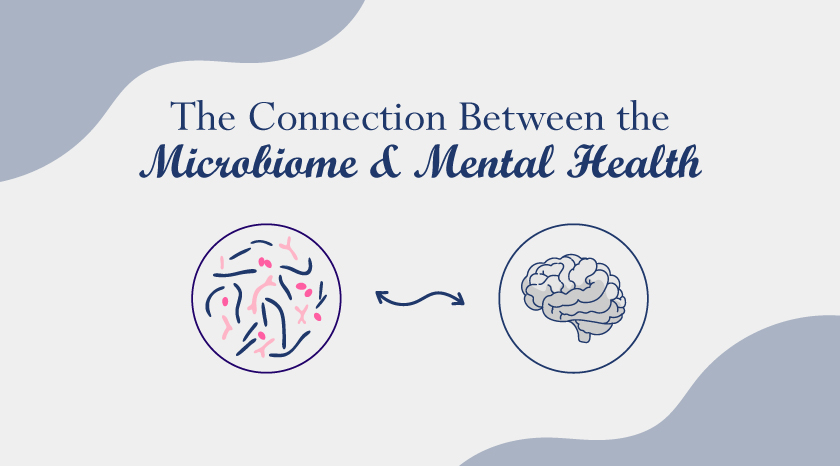In recent years, researchers have increasingly focused on the profound connection between the gut microbiome and mental health. The human microbiome, particularly the gut microbiota, plays a critical role in numerous physiological processes, including those related to mental well-being. This intricate relationship is often referred to as the “gut-brain axis.” Understanding this connection can provide new insights into how we approach mental health treatment and overall well-being.
What is the Gut-Brain Axis?
The gut-brain axis is the bidirectional communication network that links the central nervous system (CNS) with the enteric nervous system (ENS) of the gastrointestinal tract. This network allows the gut and brain to communicate through various pathways, including:
- Neural Pathways: The vagus nerve is a primary component, transmitting signals between the gut and the brain.
- Hormonal Pathways: Gut hormones and neuropeptides influence brain function and mood.
- Immune System Pathways: The gut microbiota interacts with the immune system, which can affect brain inflammation and health.
- Metabolic Pathways: Metabolites produced by gut bacteria, such as short-chain fatty acids, can impact brain function and behavior.
The Microbiome’s Role in Mental Health
- Mood Regulation and Depression: Several studies have shown that the gut microbiota can influence the production of neurotransmitters like serotonin and dopamine, which are critical for mood regulation. An imbalance in gut bacteria has been linked to conditions such as depression and anxiety. For example, a study published in the journal Nature Microbiology found that individuals with depression had a different composition of gut bacteria compared to healthy individuals.
- Anxiety: The microbiome can impact the production of gamma-aminobutyric acid (GABA), a neurotransmitter that helps regulate anxiety. Some strains of Lactobacillus and Bifidobacterium are known to produce GABA, suggesting that gut health can directly influence anxiety levels.
- Cognitive Function and Memory: Research has indicated that gut bacteria play a role in cognitive functions, including learning and memory. A study in the journal Gut Microbes showed that mice with altered gut microbiota exhibited changes in brain function related to memory.
- Stress Response: The gut microbiota can modulate the body’s stress response by influencing the hypothalamic-pituitary-adrenal (HPA) axis. Dysbiosis, or an imbalance in gut bacteria, can lead to an exaggerated stress response, contributing to chronic stress and related mental health issues.
Supporting Mental Health Through Gut Health
- Probiotics and Prebiotics: Incorporating probiotics (beneficial bacteria) and prebiotics (food for beneficial bacteria) into your diet can help maintain a healthy gut microbiome. Probiotic-rich foods include yogurt, kefir, sauerkraut, and other fermented foods. Prebiotics are found in foods like garlic, onions, bananas, and asparagus. BIOM 3-in-1 Probiotics are an excellent choice for comprehensive gut health support, combining prebiotics, probiotics, and postbiotics in one powerful formula. This unique blend not only replenishes beneficial bacteria but also nurtures and sustains their growth, ensuring optimal gut health and overall wellness.
- Diet: A balanced diet rich in fiber, fruits, vegetables, and whole grains supports a healthy gut microbiome. Reducing processed foods and sugars can also help maintain gut health.
- Stress Management: Practices such as mindfulness, meditation, and regular exercise can help regulate the gut-brain axis and reduce stress.
- Adequate Sleep: Good sleep hygiene is essential for maintaining both gut health and mental health. Poor sleep can disrupt the gut microbiome, leading to negative effects on mood and cognitive function.
By incorporating gut-friendly practices into our daily lives, we can support our mental health and overall well-being.





